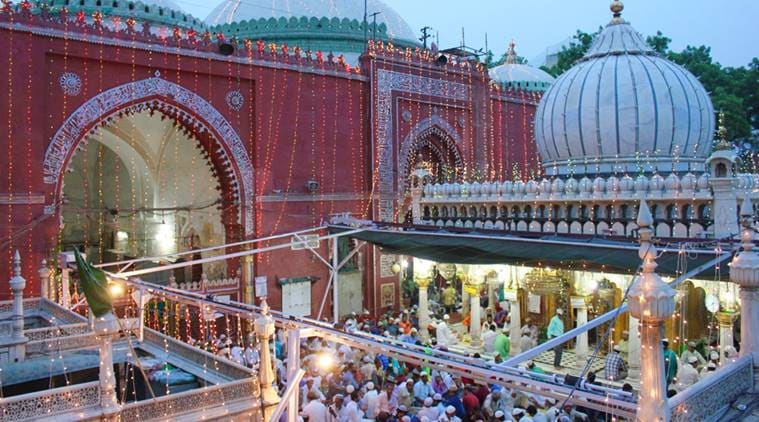
On a mellow autumn morning, I stood in the corner of the marble courtyard of the dargah of Sheikh Nizamuddin Auliya in Delhi and studied the many ways of faith. A woman was kneeling at the threshold of the mazaar, when suddenly she began to sway, back and forth, to some internal rhythm. Another woman tied a red string to the screen of a window, rested her forehead against it and went so still that I wondered if she had fainted. All around me, people mumbled over cupped hands or turned prayer beads.
A tall, thin man suddenly stretched out on the floor in a very Hindu-style shashtang pranam as the pilgrims continued to walk around him without a second glance. The spell broke when the qawwali singer with kohled eyes launched into an Amir Khusrau song, Chhaap tilak, that has been on top of the charts for 700 years.
I’m not here to pray to the Hazrat; the tokri of rose petals I’m carrying is not for him, but a woman few people pray to — Jahanara Begum, the eldest daughter of Shah Jahan. I’m pretty sure the Hazrat has no problem with that. I may drop some money into the cash box but the khadims buzzing around with their watchful, greedy eyes have been shooed away. I don’t understand the mysteries of faith and I don’t visit this dargah seeking peace or enlightenment. I go there because this chaotic, medieval world feels like home.
One thing is certain: if I ever feel the need to pray or decode the mystery of faith, I will walk down Nizamuddin Basti to Jahanara’s tomb and become a Sufi like her. A faith that talks of love, kindness, acceptance, peace, compassion, charity, and then sets it to poetry and music, that one is for me.
As I entered the narrow lanes of the Basti, my senses went on high alert. Old places have such layered smells. Going past the wayside stalls, I sniffed happily at the fragrance of roses, marigolds and jasmines with an undertone of incense. Walking on, the food shops appeared and there was the smoke from the chullahs and the tempting aroma of baking khameeri rotis. A man walked past, spreading the pungent smell of cheap ittar that made my head swim. I was home.

At the flower shop, where I usually leave my slippers, I bought roses from a boy with a budding beard and told him that the flowers were for Jahanara. I got a puzzled smile in return. Why was I praying to a forgotten princess when the Hazrat was willing to listen to my prayers?
At Nizamuddin, the poets are everywhere. Amir Khusrau and Jahanara in the courtyard; Mirza Ghalib down the lane; Abdur Rahim on the main road and Dara Shikoh’s anonymous grave is somewhere in Humayun’s Tomb. Some say, Bahadur Shah Zafar had chosen his do guz zameen here before they banished him to Rangoon.
Hidden behind a marble screen, Jahanara’s place is always quiet. At times, tired women settle there for a nap. I touched the grainy marble, cool under my fingers and noticed a layer of dried rose petals on the grave. It made me happy that someone had remembered her. As I sprinkled the velvety blossoms on top, I thought that if an intellectual realist like her could choose to be a Sufi, maybe it was worth thinking about.
By then, the qawwali singer had shifted gear and was singing a poem set to a film tune. As I tucked some money into the top of his battered harmonium, a pretty woman in an eye-popping neon green kurta smiled and shifted to make space so that I could sit and listen. They make place for you here; hand you flowers and incense, and, if you want to chat, they will listen. The idea of “us” or “them” does not exist in the Hazrat’s kingdom.
Here’s a poem on the call of the dargahs by a very “Other” poet — Anne Marie Schimmel — a scholar, a German female.
All roads point to eternity
And their centre rests
Under the sky-like dome
In the heart of a saint.
In the 14th century, when Sultan Ghiyasuddin Tughlaq was building a fortress, Nizamuddin was digging a baoli to provide water for pilgrims. The sultan was not pleased and did his best to trouble the Hazrat. Today, Tughlaqabad lies desolate, as owls and foxes live in the palaces while the dargah is alive with prayers, music and a lot of happy noise. As they sing here, what lasts is not the hubris of power but the memory of kindness.
Sadly, we never learn.